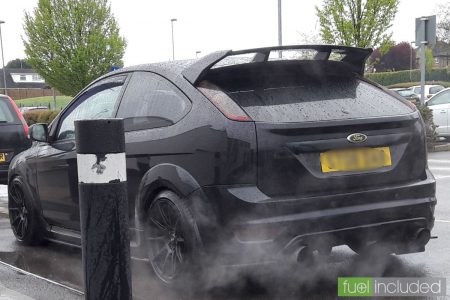California just started the clock on a future that a few years ago would’ve been unthinkable: dealerships full of nothing but zero-emissions cars.
On Wednesday, Gov. Gavin Newsom, D, ordered regulators to phase out the internal combustion engine and ban the sale of all new gasoline-fueled cars after 2035. With that, California became the first state in America to impose such a prohibition and delivered the biggest jolt yet to automakers already under pressure to give up fossil fuels and deliver a new generation of electric vehicles.
While for now the industry depends on gasoline-powered SUVs and pickups for most of its profit, traditional automakers are investing billions of dollars in electrification and announcing new EV models — with start-ups such as Rivian Automotive and Lucid Motors Inc. right on their heels. California’s ban ups the ante.
“There’s an arms race going on here,” said Mary Nichols, chair of the powerful California Air Resources Board that regulates the emissions of everything from oil refineries to power plants to cars.
Newsom’s announcement adds to worldwide momentum this week in the fight against climate change, coming less than a day after China pledged to go carbon neutral by 2060 — a bold move from the world’s largest polluter that, while still 40 years out, caught environmentalists by surprise. California is joining more than a dozen countries, including the U.K., France and Canada, that are phasing out the internal combustion engine, BloombergNEF data show. The U.K. is actually considering whether to push forward its ban to 2035.
What California wants would be a huge leap for the auto industry. Less than 8% of new vehicles registered in California through the first half of the year were electric ones. And in 2035, BNEF projects about half of U.S. passenger vehicle sales will be battery and plug-in hybrid electric vehicles in 2035.
The target is “aggressive,” but it has the potential to speed the pace of EV adoption among automakers, said Stephanie Brinley, a principal automotive analyst for IHS Markit.
“If it actually happens, it does create a reason and impetus to make change happen faster,” Brinley said. If “you have the opportunity for volume there, and you’re going to be able to sell the car, then you can put more money into investing and increasing your capacity faster.”
Newsom’s order — signed on the hood of the forthcoming electric Ford Mustang Mach-E — will inevitably set the tone for states across America. Not only is California the largest car market in the U.S., it’s also one of the nation’s biggest gasoline consumers and the world’s second-largest EV market, behind only China. The strength of its transportation policy has always hinged on the fact that automakers, other like-minded states and often the nation have tended to follow suit.
The ban is “a kiss of death for gasoline and petroleum as California tends to be a trendsetter,” said Patrick DeHaan, head of petroleum analysis for fuel-pricing firm GasBuddy.
Key questions remain, including whether California will allow plug-in hybrid sales (used gasoline car sales will be allowed) — and whether the rest of the U.S. will actually join. Much of the latter hinges on the upcoming presidential election. While the Trump administration has aggressively fought California’s efforts to squeeze emissions out of transportation, Democratic presidential nominee Joe Biden has advocated for the widespread adoption of electric cars and a national charging network to power them.
Read more: NNY360
It’s Time to Go Green!
If you would like to know more about Solar Panels and the PowerBanx range of home battery systems, and get a free instant quote, please complete our online form:


